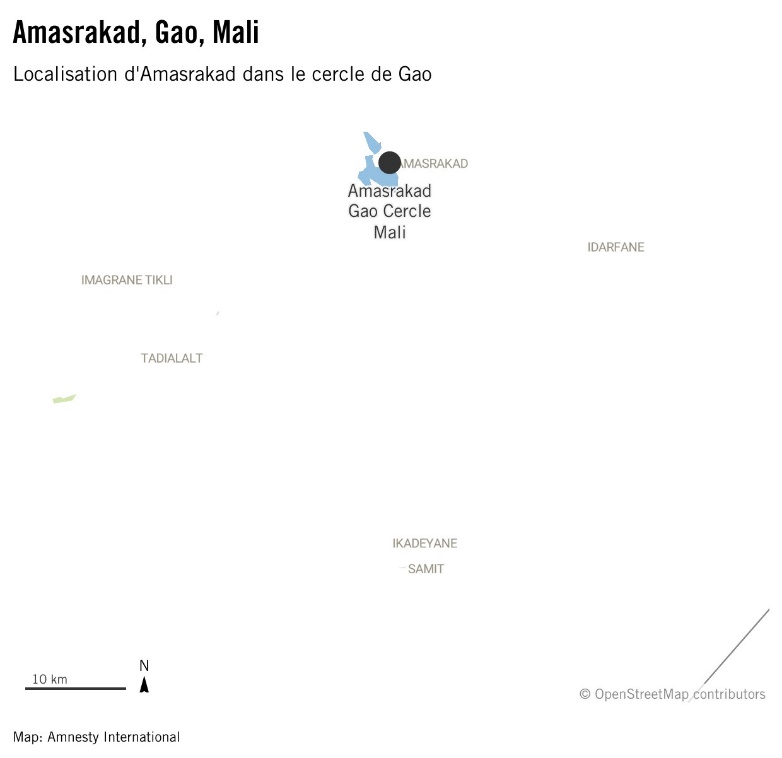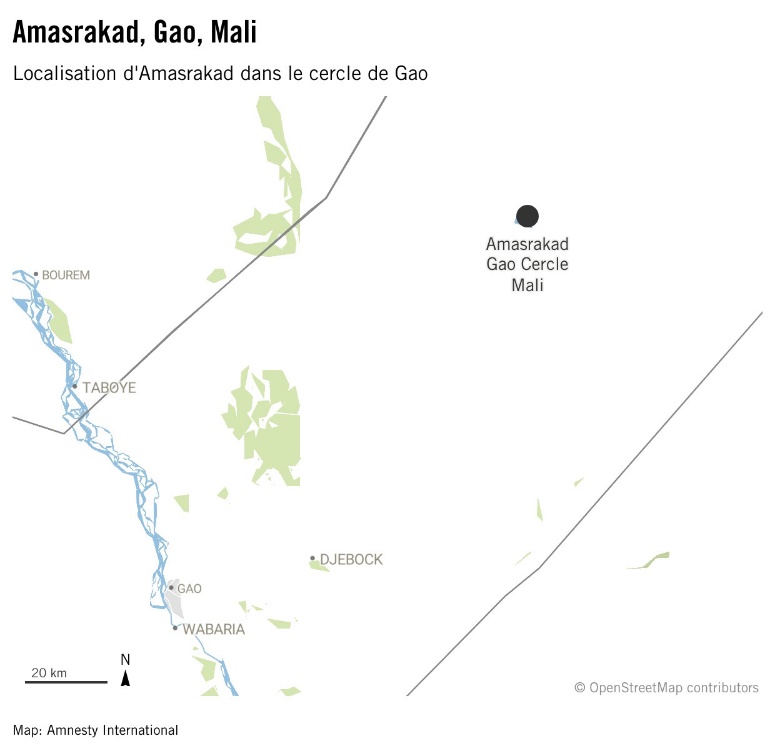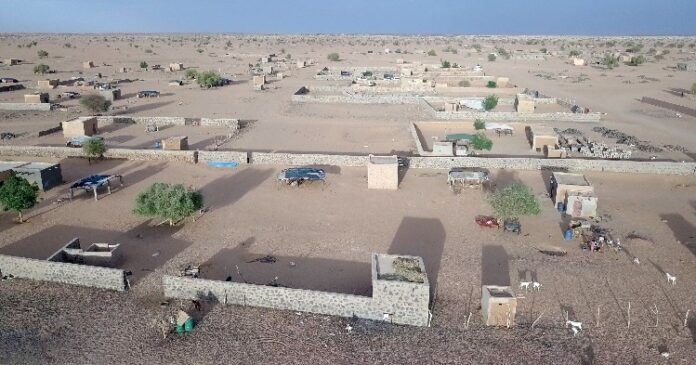NAIROBI (KAAB TV) – Two night-time drone strikes by the Malian army on 17 March killed at least 13 civilians, including seven children aged between two and 17, in Amaskarad, Gao region, and left more than a dozen people injured, according to eyewitness accounts gathered by Amnesty International.
A communiqué issued by the Malian army described the strikes, as “having contributed to neutralizing many terrorists and some of their vehicles”. But this claim is refuted by the seven survivors and witnesses Amnesty International spoke to. After an initial strike hit a Toyota Hilux, a second struck a flimsy makeshift shelter where local residents had sought refuge, killing nine people instantly.
Elghas*, who lost several relatives during the second strike, told Amnesty International:
“I didn’t hear the first strike. I was still asleep, but the people in my house had rushed to a neighbouring family for protection. It was afterwards that one of my sons came back and woke me up and told me about the car that had been targeted by the first strike. I followed him to the other compound where people had taken refuge. The second strike hit when I reached the entrance to the compound. I froze and I could see the flames around the shelter. It took me a while to get into the compound and head for the victims. My wife and six of my children were sheltering there and they were all killed by the strike. The other victims were friends and acquaintances who were simply seeking protection in that compound.”
“The Malian authorities must abide by their responsibilities under international law, which requires all parties to an armed conflict to distinguish between civilians and combatants and refrain from conducting targeted or indiscriminate attacks against civilians,” said Samira Daoud, Amnesty International’s Regional Director for West & Central Africa.
“It is unconscionable that whole families could be killed by drone strikes, without any accountability or justice. Authorities in Mali must ensure an effective and independent investigation into the killings of these civilians.”
The Malian government has intensified military operations against Al-Qaida, Islamic state and former rebel groups, since mid-2023. As part of these operations, the military regularly conducts drone strikes. An upsurge in military operations in the regions of Kidal and Gao over the last few months has led to many people from neighbouring regions fleeing to Amasrakad for refuge.
Eyewitnesses and survivors told Amnesty International that another person died of their wounds while receiving medical treatment in Amasrakad. Two days after the drone strike, a woman who was injured in the attack discovered that her unborn foetus had died.
Attacked while seeking protection
One survivor, Aghaly*, told Amnesty International that the first strike took place at night while everyone was asleep.

“I was woken up by a loud bang and screams to leave [the compound]. Me and my cousins had to evacuate our grandmother urgently from the compound. This was the first strike of the night which happened around 1 am. It targeted a Toyota Hilux vehicle that was not 15-20 metres from our house. This vehicle serves the purpose of the health center and is only used for that purpose.”
He said many neighbours and fellow townspeople fled to a shelter within a compound that did not have cars or vehicles around, believing that being far from the vehicles would protect them from strikes. But the compound was targeted in a second strike which killed nine people instantly.
“Bodies were shredded and strewn across the yard and it was hard to identify them. Two other women would succumb within the hour from their injuries, bringing the number of dead to 11 overnight. Around 11 people were injured, some of whom were suffering from severe first degree burns and serious injuries caused by shrapnel. All these people are relatives and acquaintances with whom I have grown up or seen grow. None of them are part of an armed group to warrant that strike.”

Civilian objects such as vehicles used by health centres are protected against attack under international humanitarian law (IHL), unless they are used for military objectives. Restraint and precaution must guide all decisions on targeting objects. The destruction of a logistical vehicle of the Amasrakad health centre by a drone strike is thus a violation of IHL.


